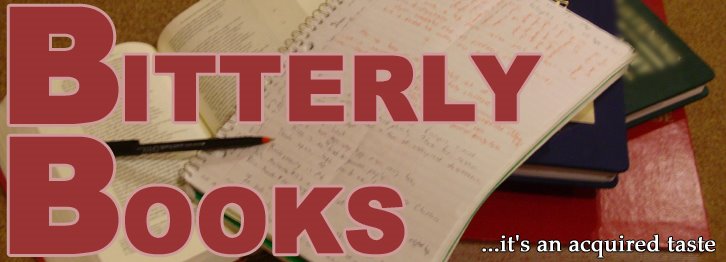This book was written by: Grace Llewellyn, a former teacher. She writes in the book's opening thank-you pages that "that this book is not a personal attack on schoolteachers," which means they shouldn't get mad when she calls them "an arrogant profession which has preyed for a century on the nation's young"(p.99). Ms. Llewellyn is pro-teacher but anti-school because:
"Schools--and this society they represent--go beyond blocking your visionary tendencies. They further cripple you by making fun of you, as if you were not quite human, the new niggers. Why? Probably because every hierarchical society seems to need niggers to put down, and women and African-Americans won't take it anymore. When someone puts you down, you want to put somebody else down."(p.58, emphasis in original)To further illustrate her point, Ms. Llewellyn cites the story of King Looie Katz, written by "Dr. Seuss, [a] reliable social commentator"(p.58).
What is in this book: Advice for dealing with your local school system when you want to withdraw from institutionalized education to learn at home. When communicating with school officials, "forget everything you ever learned about good writing being direct and simple; make it as long and flowery as you can"(p.97). If you have tried to work with local school administrators and find them difficult to deal with:
"Simply stop going. If you are part of a large, chaotic school district, nobody may ever have time to figure out you're missing. The same can hold if you've freshly moved to a new area--how does a school know it owns you unless you tell them? Many homeschooling families, particularly in rural areas, never register their children in schools to begin with, so the schools never realize they exist. If you never have to deal with school officials, well, you escape all the potential paperwork and nonsense they may ask you and your parents to complete."(p.101)
What is not in this book? An obsession with agonizingly specific roadmaps or overly detailed plans for learning. Children don't need schools because "Healthy kids can teach themselves what they need to know, through books, various people, thinking, and other means" (p.6). They also learn by observing role models, who "can be people you know--like your parents--or people in the news--like Sinead O'Connor or Sandra Day O'Connor"(p.124). In the book's section on "Unschooling the arts," Ms. Llewellyn lists some prominent actor role models who didn't care about high school:
"Eddie Murphy, according to Current Biography 1983, was an 'indifferent student,' and said school was 'a never-ending party, just a place to get laughs.'
Roseanne Barr, comedian and star of the TV series Roseanne, dropped out of high school at sixteen. She worked as a dishwasher and eventually started performing in comedy clubs.
And Mel Gibson told journalist Roy Sekoff, 'School bored me. I graduated, but just barely.'"(p.237)
Would you recommend this book to a fat kid? No. Ms. Llewellyn relies heavily on metaphors that link learning with eating, urging students to "read to feed your hungry head"(p.65), and warning that "being in school is like being incredibly hungry and sitting at Burger King eating too much, too fast to be satisfied, and then puking it up"(p.34). It's "food for thought"(p.58), but it might drive larger readers to the refrigerator instead of the library. And that's not even counting the fictional story about a planet where children are (incorrectly) taught to eat, which Ms. Llewellyn includes as an allegory about the dangers of institutionalizing a process that should come naturally, not to mention the book's food-based puns. "Learn to be a human bean [sic] and not instant mashed potatoes"(p.69).
Would you recommend this book to a burned-out druggie? That term is very disrespectful. After all:
"Drug abuse is a disease. Drug use, however, is often the sign of someone's intense spiritual quest. Hallucinogens can be an easy, though risky, way to tap into visionary experience"(p.57, emphasis in original)Schools try to suppress this visionary experience because "People who are fully and permanently awakened to the wildness and beauty around them make lousy wage-slaves. On the other hand, people who are not distracted by a wellspring of spiritual and sexual yearnings can assemble clock radios or automobiles very quickly"(p.56, emphasis in original).
What was interesting about this book? The comprehensive range of high school experiences for which Ms. Llewellyn suggests alternatives, including things like graduation. "As an unschooler, don't neglect to find some way of celebrating your passage into adulthood"(p.260).
She also brings up some interesting ideas when discussing substitutes for gym class. "Unschool that body! What you can do with it in school is nothing compared to what you can with it on an icy hill or a surfboard or a green field or a horse or a bike or a dance floor"(p.239) or a stained patch of asphalt by the dumpster behind a Dairy Queen! Of course, the challenge in these activities lies in figuring out when you've gone from intramural to varsity all-star.
The Teenage Liberation Handbook: How to Quit School and Get a Real Life and Education by Grace Llewellyn (Lowry House, 1991, ISBN: 0-9629591-0-3)









